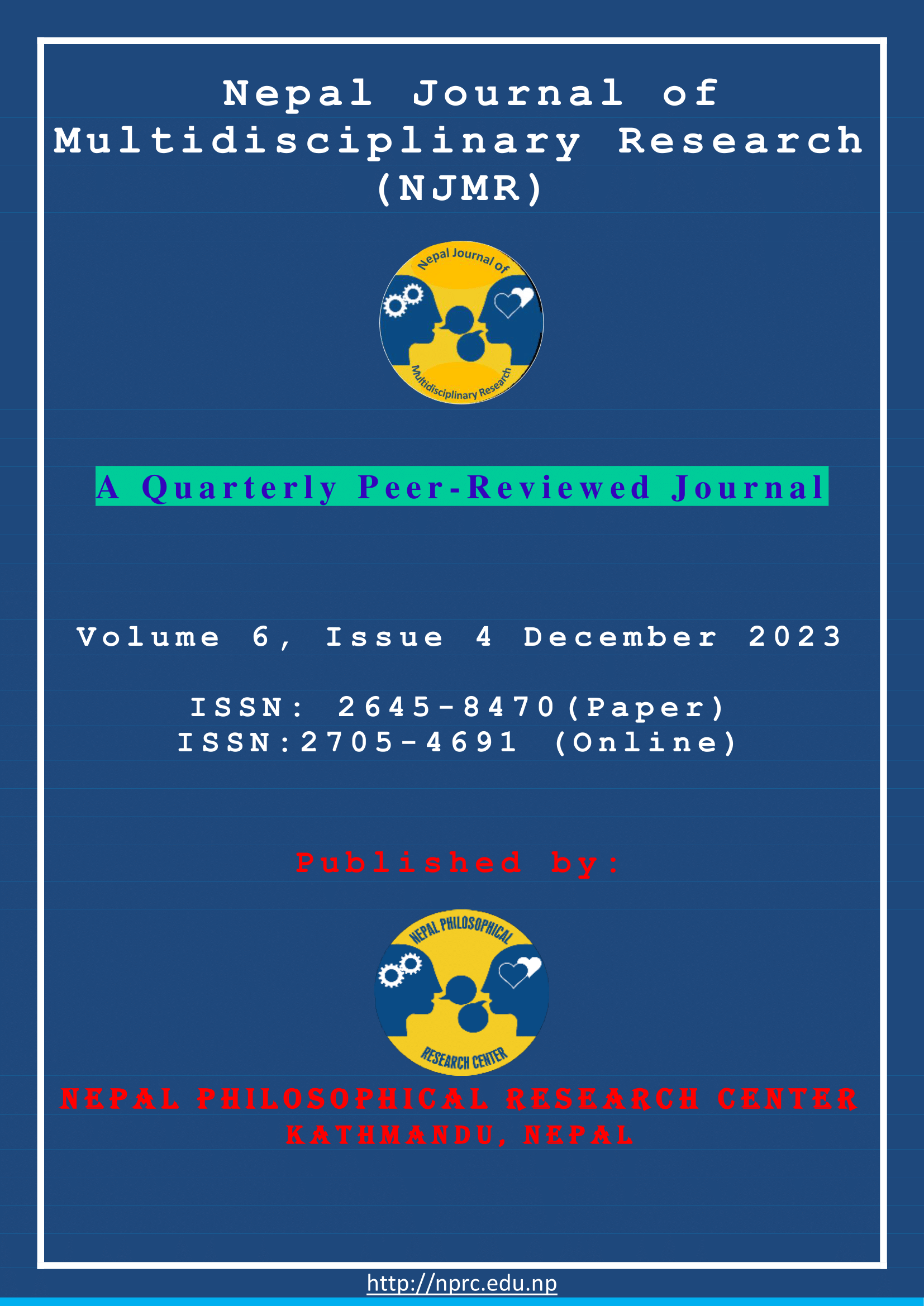Exploring Menstrual Hygiene: A Comprehensive Study of Knowledge, Perceptions, and Practices among Higher Secondary Girl Students at Baneshwor Multiple Campus, Kathmandu, Nepal (2023)
DOI:
https://doi.org/10.3126/njmr.v6i4.62007Keywords:
Adolescent girls, menarche, menstrual practicesAbstract
Introduction: Even though menstruation is a natural process, adolescent girls face various challenges including lack of knowledge, misperceptions, taboos and restrictions related to practices. The school and college environment can play a greater role in alleviating these issues by creating favorable conditions for dignified menstruation to girl students.
Objective: The objective of this study is to assess the knowledge, perceptions and practices regarding menstrual hygiene among higher secondary girl students of the Baneshwor Multiple Campus (BMC) in Kathmandu, Nepal.
Methods: A descriptive cross-sectional study was conducted using a self-administered semi-structured questionnaire collecting data from 106 higher secondary girl students. Descriptive statistics like frequency, percentage, mean and standard deviation were used in data analysis.
Results: All 106 girl students answered the normal monthly bleeding as the meaning of menstruation while the majority (98.1%) answered the normal body process as the cause of menstruation. Majority respondents (88.7%) reported to have knowledge about Chhapaudi but some (12.3%) still considered it as a legal tradition. Large majority of the girl students still followed menstrual restrictions with visiting temple (83%) and attending religious events (61.3%) being most common. Two-third students (65.1%) were unable to focus on study in campus when menstruating. Majority of students (71.7%) used disposable sanitary pads during their last menstruation but more than two-third (69.8%) reported of not being able to change it as often as liked in campus. Nearly half of girl students (43.45%) missed campus due to menstruation in the last three months with main reasons cited as pain, fear of leakage and tiredness. While half of students (49.1%) affirmed of sanitary materials being provided by campus management but only one-third (33%) of them reported it to be adequate.
Conclusion: Knowledge regarding the meaning and cause of menstruation was nearly universal among higher secondary girl students of BMC. Some regarded the curse of god as the cause of menstruation and Chaupadi as a legal tradition while majority still followed menstrual restrictions one or other types, suggesting the need to raise awareness for breaking taboos and stigma surrounding menstruation. Supply of disposable sanitary pads was reported to be inadequate and one-third were unable to focus on study in campus during menstruation, suggesting improved supply of materials and menstruation-friendly environment in campus.
Downloads
Downloads
Published
How to Cite
Issue
Section
License
Copyright (c) 2023 Labanya Devi Ghimire

This work is licensed under a Creative Commons Attribution-NonCommercial 4.0 International License.
This license enables reusers to distribute, remix, adapt, and build upon the material in any medium or format for noncommercial purposes only, and only so long as attribution is given to the creator.




